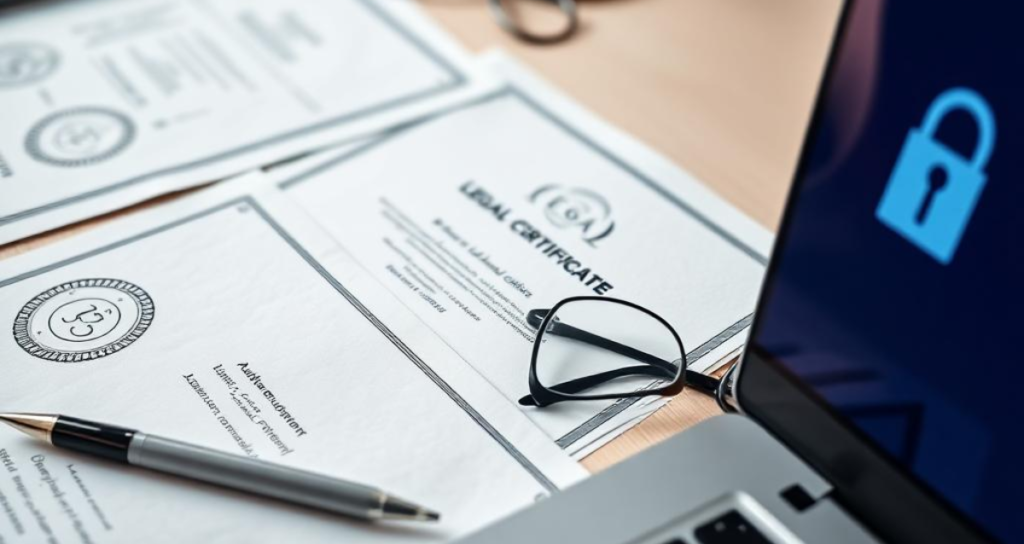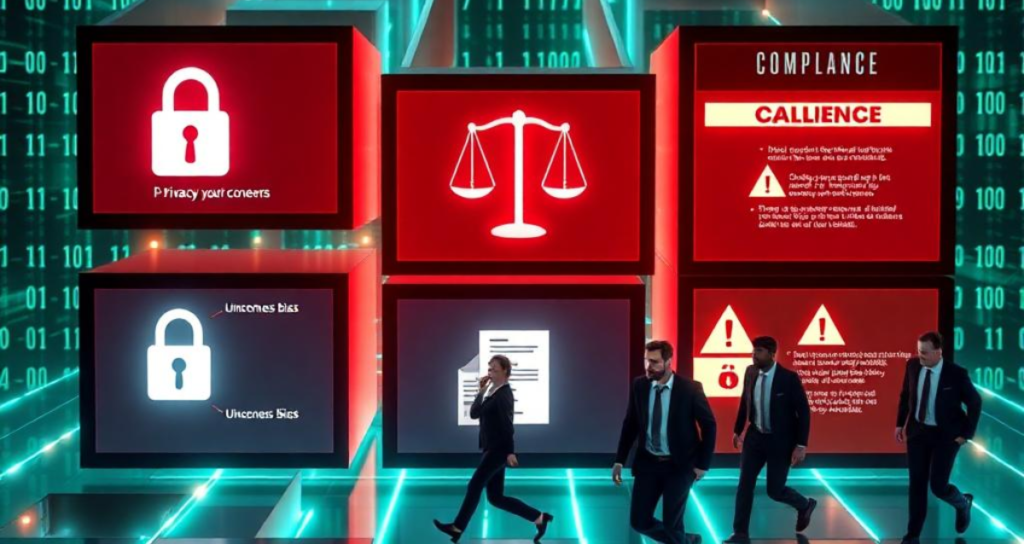Cyber background checks have become essential in today’s digital era due to the rise in online scams, identity theft, and cybercrimes. With countless background check sites available, finding reliable and efficient options for accurate information can be challenging. These checks play a vital role in safeguarding sensitive data and ensuring digital security.
Cybersecurity background checks are key to modern organizational safety. As cyber threats evolve rapidly, businesses need to thoroughly vet employees in critical roles. These checks not only help prevent potential breaches but also build trust and accountability within teams, making them indispensable in today’s digital-first world.
Table of Contents
Defining Cybersecurity Background Checks
Cybersecurity Background Checks go beyond traditional background screenings by delving into an individual’s online presence and digital footprint. Unlike standard checks that primarily focus on criminal records and employment history, these specialized screenings aim to assess an applicant’s Cyber Security Awareness and identify any potential cybersecurity risks associated with them.
What are Cybersecurity Background Checks?
Cybersecurity Background Checks involve a comprehensive review of an individual’s social media activity, online forums, and public records to identify any concerning behaviours or associations.
Key Components of Cybersecurity Background Checks:
- Online Activity Analysis: This involves a comprehensive review of an individual’s social media activity, online forums, and public records to identify any concerning behaviours or associations.
- Technical Skills Verification: These checks often include rigorous verification of claimed certifications and educational qualifications in cybersecurity-related fields.
- Risk Assessment: By analyzing an individual’s online behaviour and digital footprint, Cybersecurity Background Checks help organizations assess the potential risks associated with hiring that individual, such as the likelihood of data breaches or insider threats.
The Importance of Cybersecurity Background Checks: In an era where personal and professional lives intertwine seamlessly with the digital realm, Cybersecurity Background Checks have become increasingly vital for safeguarding individuals and organizations from online threats.
- Enhanced Security Posture: By conducting thorough Cybersecurity Background Checks, organizations can significantly enhance their overall security posture by identifying and mitigating potential risks associated with new hires.
- Reduced Risk of Data Breaches: Cybersecurity Background Checks play a crucial role in reducing the risk of data breaches caused by negligent or malicious employees.
- Improved Hiring Decisions: These checks enable organizations to make more informed hiring decisions by providing valuable insights into an applicant’s character, trustworthiness, and potential for cybersecurity-related risks.
The Critical Role of Cybersecurity Background Checks
In today’s increasingly interconnected world, safeguarding sensitive data and maintaining a secure digital environment is paramount for any organization.
- Mitigating Insider Threats: Insider threats, such as data breaches caused by negligent or malicious employees, pose a significant risk to organizations. Cybersecurity Background Checks play a crucial role in mitigating these threats by identifying potential red flags, such as a history of unethical behaviour or a disregard for security protocols before an individual is granted access to sensitive information.
- Protecting Sensitive Data: In today’s digital age, organizations handle vast amounts of sensitive data, including customer information, financial records, and intellectual property. Cybersecurity Background Checks help ensure that only trustworthy and responsible individuals are entrusted with access to these critical assets, minimizing the risk of data breaches and maintaining organizational integrity.
- Enhancing Organizational Trust By implementing cybersecurity background checks, organizations demonstrate their commitment to maintaining a secure and reliable environment.
What to Expect in a Cybersecurity Background Check
Cybersecurity Background Checks typically encompass a multi-faceted investigation, including:
- Criminal History Review: A thorough review of criminal records helps identify any convictions that may pose a security risk or raise concerns about an individual’s suitability for roles involving sensitive data and critical systems.
- Employment and Education Verification: Cybersecurity Background Checks include rigorous verification of an applicant’s employment history and educational qualifications to ensure the accuracy and authenticity of their credentials.
- Credential Validation: In cybersecurity roles, professional certifications like CISSP, CISM, or CEH are highly valued. Cybersecurity Background Checks often include validation of these credentials to ensure their legitimacy and confirm an individual’s expertise.
- Credit Checks: While not always mandatory, credit checks may be conducted in certain situations to assess an individual’s financial stability and identify any potential vulnerabilities that could pose a security risk.
Steps to Conducting Effective Cybersecurity Background Checks
Organizations must follow a structured and methodical approach to ensure the effectiveness and integrity of Cybersecurity Background Checks.
- Develop a Comprehensive Policy: Establish a clear and comprehensive company policy outlining the scope and procedures for conducting Cybersecurity Background Checks. This policy should be aligned with relevant legal and regulatory requirements.
- Obtain Informed Consent: Before initiating any Cybersecurity Background Checks, obtain written consent from all applicants, clearly explaining the scope of the checks and how the information will be used.
- Partner with Reputable Providers: Select a reputable and experienced background screening provider specializing in Cybersecurity Background Checks to ensure accurate, reliable, and legally compliant results.
Legal and Regulatory Considerations for Cybersecurity Background Checks

Conducting thorough Cybersecurity Background Checks is essential for safeguarding an organization’s sensitive data and maintaining a secure work environment. However, it’s crucial to adhere to a strict legal and ethical framework.
- Federal Regulations: The Fair Credit Reporting Act (FCRA) in the United States provides a comprehensive set of guidelines for conducting background checks, emphasizing transparency, fairness, and the protection of individual rights.
- State-Specific Regulations: It’s essential to be aware of state-specific laws and regulations that may impose additional restrictions or requirements on Cybersecurity Background Checks.
Common Disqualifiers for Cybersecurity Roles
Given the critical nature of cybersecurity positions, thorough background checks are essential to identify potential risks. Some common disqualifiers may include:
- Fabricating Credentials: Misrepresenting qualifications or experience can be a significant red flag and may immediately disqualify a candidate.
- Relevant Criminal Convictions: Convictions related to fraud, hacking, data theft, or other cybercrimes can pose a serious security risk and may disqualify a candidate from sensitive roles.
- Financial Red Flags: A history of significant financial instability, such as excessive debt or a history of financial misconduct, can raise concerns about an individual’s susceptibility to exploitation or involvement in fraudulent activities.
Emerging Trends in Cybersecurity Background Checks
The evolving landscape of cybersecurity necessitates the adoption of innovative approaches to background checks.
1. Use of AI in Background Screening
- Automation and Efficiency: AI algorithms can automate many aspects of the background check process, such as data entry, document verification, and initial risk assessment. This significantly speeds up the process and reduces manual effort.
- Enhanced Accuracy: AI can analyze vast amounts of data from various sources (social media, public records, etc.) to identify patterns and anomalies that may not be apparent to human reviewers. This can improve the accuracy and reliability of background checks.
- Predictive Analytics: AI-powered tools can analyze data to identify potential risks and predict future behaviour. For example, they can identify individuals with a higher risk of fraud or misconduct based on their online activity and social connections.
2. Blockchain for Data Integrity
- Unalterable Records: Blockchain technology provides an immutable and tamper-proof record of background check data. This ensures the authenticity and integrity of the information, preventing data manipulation or falsification.
- Secure Data Sharing: Blockchain can facilitate secure and efficient sharing of background check data between organizations while maintaining privacy and control over data access.
- Increased Transparency: Blockchain can increase transparency and accountability in the background check process by providing a clear and auditable record of all activities.
3. Biometric Data Verification
- Enhanced Identity Verification: Biometric methods, such as facial recognition, fingerprint scanning, and voice recognition, can be used to verify the identity of candidates more accurately and securely.
- Reduced Fraud Risk: Biometric verification can help reduce the risk of identity theft and fraud by ensuring that the person being screened is the actual individual they claim to be.
- Improved Security: Biometric data can be used to enhance the security of access control systems and other security measures within an organization
Cybersecurity Background Checks: A Multi-faceted Approach to Risk Mitigation
Now that we’ve established the importance of cyber background checks let’s delve deeper into the specific benefits they offer to both individuals and organizations:
- Enhanced Hiring Decisions:
- Cybersecurity Background Checks provide valuable insights into an individual’s online presence, enabling organizations to make informed hiring decisions. By identifying potential red flags or security gaps, companies can mitigate risks associated with employee onboarding.
- Regulatory Compliance:
- In highly regulated sectors, Cybersecurity Background Checks are crucial for demonstrating compliance with industry standards and legal requirements. These checks help ensure that individuals and entities within the organization adhere to relevant regulations, minimizing legal and reputational risks.
- Proactive Threat Identification:
- Cybersecurity Background Checks play a vital role in proactive threat detection. By continuously monitoring for suspicious online activities or indicators of malicious behaviour, organizations can identify and address potential cyber threats before they can cause significant damage.
- Reputation Management and Protection:
- For both individuals and organizations, maintaining a positive online reputation is paramount. Cybersecurity Background Checks help individuals identify and rectify any negative or inaccurate information that could damage their reputation. For businesses, these checks contribute to maintaining a trustworthy brand image and protecting their valuable reputation from potential harm.
- Safeguarding Against Fraud and Identity Theft:
- By conducting thorough Cybersecurity Background Checks, organizations can ensure that individuals entrusted with sensitive roles have a history of integrity. This helps mitigate the risk of internal fraud, identity theft, and data breaches, safeguarding valuable organizational assets.
Key Benefits of Cybersecurity Background Checks:
Cyber background checks can help maintain the integrity and security of organizations in our digitally-driven world. Here are some of their benefits:
- Reduced Cybersecurity Risks:
- Cybersecurity Background Checks help identify and mitigate potential vulnerabilities within the organization, minimizing the risk of cyberattacks and data breaches.
- Enhanced Organizational Security Posture:
- By incorporating Cybersecurity Background Checks into their security protocols, organizations significantly enhance their overall security posture, creating a more resilient and secure operating environment.
- Improved Decision-Making:
- Cybersecurity Background Checks provide critical information that informs more informed and secure hiring, contracting, and partnership decisions.
Top Tools and Services for Cybersecurity Screening
Popular platforms include:
- Cyber Intelligence: This platform specializes in providing in-depth insights into candidate backgrounds, going beyond traditional checks. Cyber intelligence leverages advanced data analytics and intelligence-gathering techniques to assess an individual’s online presence, identify potential security risks, and provide comprehensive reports that aid organizations in making informed hiring decisions.
- SecureSearch: Focusing on thorough and compliant screenings, SecureSearch offers a robust platform for conducting Cybersecurity Background Checks. They prioritize data privacy and accuracy, ensuring that all checks are conducted according to relevant legal and regulatory requirements.
- Checkr: A leading provider of background check solutions, Checkr offers scalable and customizable options for organizations of all sizes. Their platform incorporates advanced technology and AI to streamline the Cybersecurity Background Check process, providing fast and accurate results while maintaining a high level of data security and compliance.
Challenges in Cybersecurity Background Checks

The whole process of opting out of Cyber Background Checks is long and effort-consuming. Here is :
- Balancing Thoroughness with Privacy Employers must navigate the fine line between collecting necessary information and respecting candidate privacy.
- Avoiding Unconscious Bias Ensuring that screening processes are objective and free from bias is essential for fair hiring practices.
- Ensuring Regulatory Compliance Staying updated with evolving laws and standards is a continuous challenge for organizations.
Best Practices for Conducting Cybersecurity Background Checks
Conducting effective Cybersecurity Background Checks requires a meticulous and ethical approach that prioritizes both security and individual privacy.
- Tailoring Checks to Specific Roles Different cybersecurity positions may require varying levels of scrutiny. Customize checks accordingly.
- Communicating Transparently with Applicants Open communication about the screening process fosters trust and cooperation.
- Reviewing Findings Objectively Avoid jumping to conclusions. Carefully analyze results to make informed decisions.
Balancing Security with Privacy: A Critical Consideration in Cybersecurity Background Checks
This concise starting line emphasizes the inherent tension between the need for security and the importance of protecting individual privacy.
- Striking the Right Balance: Conducting Cybersecurity Background Checks is crucial for enhancing organizational security, but it’s essential to strike a balance between security needs and the ethical responsibility to protect individual privacy.
- Safeguarding Sensitive Applicant Information: Organizations must implement robust data protection measures to safeguard the privacy of applicant information collected during Cybersecurity Background Checks. This includes:
- Data Minimization: Only collect data that is necessary for the specific role and the background check.
- Data Security: Implement strong security measures to protect applicant data from unauthorized access, use, or disclosure. This may include encryption, access controls, and regular security audits.
- Data Retention Policies: Establish clear data retention policies that specify how long applicant data will be stored and when it will be securely destroyed.
- Transparency and Consent: Be transparent with applicants about the scope of the Cybersecurity Background Check, the types of information that will be collected, and how that information will be used. Obtain explicit and informed consent from applicants before conducting any checks.
By carefully considering these privacy implications and implementing appropriate safeguards, organizations can conduct Cybersecurity Background Checks effectively while upholding the privacy rights of applicants.
Conclusion
Cybersecurity background checks are an indispensable tool for safeguarding organizational assets and maintaining trust. Cybersecurity Background Checks are a critical component of a robust cybersecurity strategy. By carefully considering the legal, ethical, and practical aspects of these checks, organizations can effectively mitigate risks, protect sensitive data, and build a more secure and trustworthy environment. Conducting thorough Cybersecurity Background Checks enables organizations to make informed hiring decisions, identify potential threats, and ultimately enhance their overall security posture. While respecting individual privacy is paramount, the benefits of implementing well-defined Cybersecurity Background Checks significantly outweigh the potential risks, making them an indispensable tool for modern organizations.
FAQs
How long does a cybersecurity background check take?
The duration varies but typically ranges from a few days to a couple of weeks, depending on the depth of the screening.
What factors could disqualify an applicant?
Disqualifiers include criminal convictions related to cybersecurity, falsified credentials, and significant financial issues.

